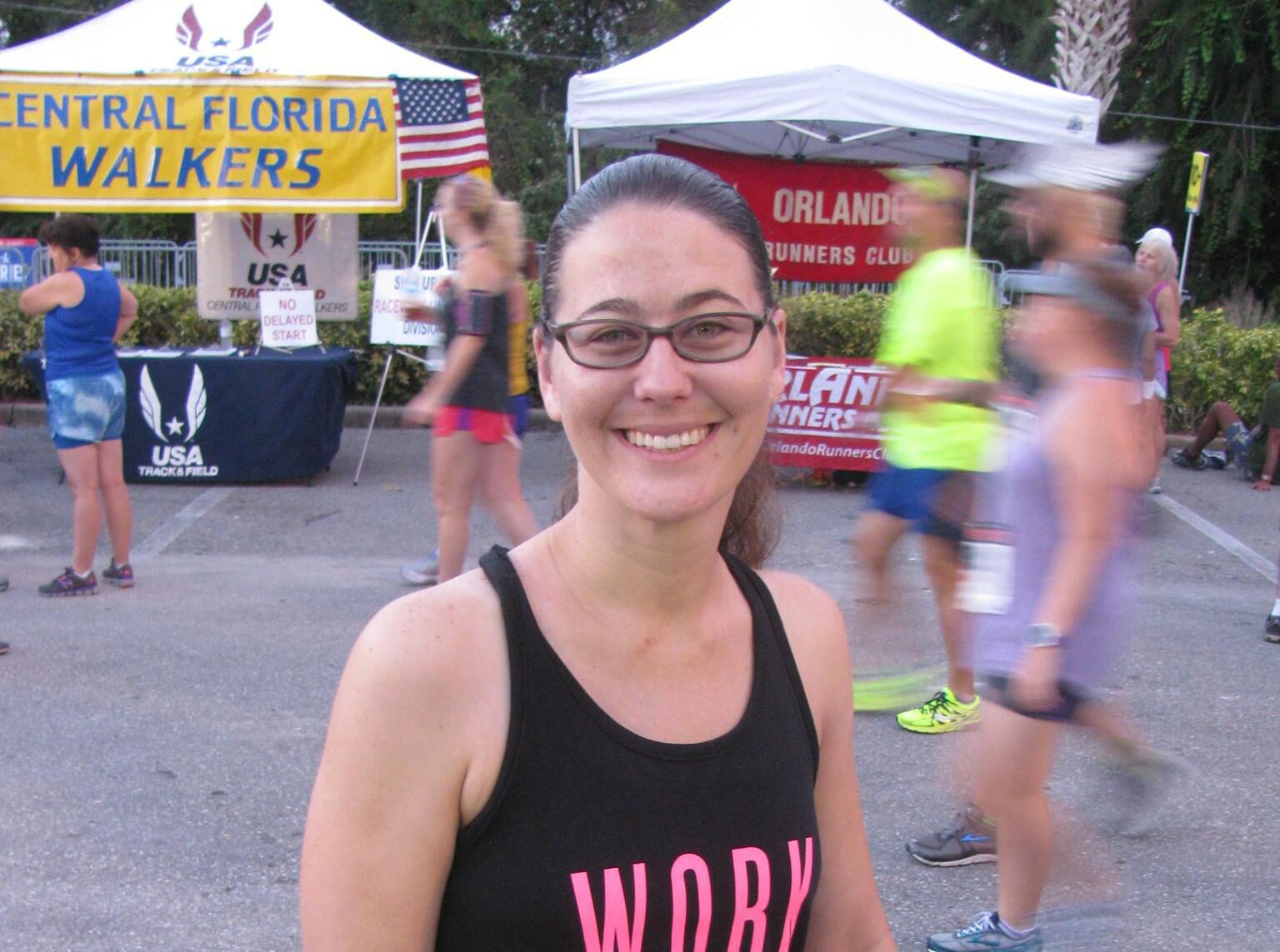
Angela | Faces of Epilepsy
Life was always a struggle.
At age seven, I was outside playing with my friends when suddenly I had a grand-mal seizure. My family rushed me to the hospital, where doctors struggled to control my epileptic seizures. They weren’t sure if I was going to survive. After a week in the hospital and numerous tests, the doctors diagnosed me with viral encephalitis. The hospital discharged me but with many complications. I didn’t remember many things- including most of my family, how to walk, or how to talk.
Since my brain had been so affected, I had to start life over. The school administration didn’t even want me to attend my old school because I had regressed so much. My teachers and classmates rejected me and never asked me to be involved in any activities as a child. I acted like a three-year-old by hiding under tables and interrupting the class. The only people I looked forward to seeing outside my family were my peers at my dance studio. There I could be who I was; everyone understood me and accepted me.
By the time I was in high school, I had started acting more my age. By then, my brain was catching up and forming its unique way of learning.
I wanted to go to college and make something of myself, but I had no idea how. How do you get into college? How do you get a scholarship? Help was nowhere to be found. I knew that my medical condition would always get in my way. Continuously going to the neurologist, yearly eye exams, remembering to take my pills, and anxiety attacks were stressful and time-consuming. I had to start somewhere with life after school, so I decided to work at Sea World and McDonald’s. Knowing that’s not what I wanted to do forever, I had to figure out my options and how I would get there.
While in high school, I met Tom, the future father of my child. We got pregnant young, and it was a challenge. I was living with my in-laws at the time, and knowing that I was the parent, I had to find a way to make Amanda’s life the best it could be. However, I struggled with the fact that we didn’t have that much independence which caused anxiety and stress, which turned into more seizures. The current direction of my life was not the path I wanted my life to go down.
Not long after I was married, I started working for Publix because it was one of the few jobs I could keep because of my seizures. Publix is a great place to work. After about five years into Publix, I decided that I was going to go back to school to become a medical assistant. While I enjoyed this, it was a challenge as I was working in the morning and going to school at night. Then the time to complete my internship portion of my program to get my medical license came. At interviews, every time the word seizure came up, the interview was over. Receiving rejections was difficult, but I decided to continue working at Publix. After ten years of employment, I decided to commit to the company and started to climb the ladder.
I had been going to several different neurologists for years, and I finally started to get things together around 2013. After taking many medications, my neurologist decided that brain surgery was the best thing for me. The testing process to determine if I was eligible for the Craniopharyngioma operation took over a year and several trips to Shands Hospital in Gainesville, but finally, I was accepted. Then began the worrying. Worrying about brain surgery, how my life would be affected after the operation, and how it would affect the people I love. In 2015, the hospital completed all my testing, and the hospital admitted me for my first surgery, where they placed electrodes in my brain.
I’m a strong person with a high pain tolerance; however, the week after my surgery, I had about 20 seizures in 5 days, which I think is a record and a shock to my doctor. It was hard having other people take care of me during this period, but I had to think about the future no matter how badly it hurt. No seizures, hopefully, and no medicine. A lot more independence. I started feeling better after five days when the doctors came in and told me it was time for the second surgery, where doctors would remove a piece of my brain to prevent seizures.
When I came home from the hospital, I thought I would recover quickly and return to normal. I was utterly wrong. I had headaches, stomach aches, significant pains, and anxiety at night. I needed help doing everything. I had to learn to walk again as my balance was completely off. After a couple of days, I got on a routine where I went out once a day and made sure I took my pills no matter what pain I was in. I still have a few complications; however, slowly but surely, things are getting back to normal. It’s been about two months since my surgeries, and between therapy, staying strong, and help from others, I can see a great future.